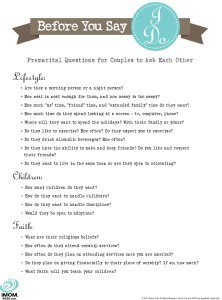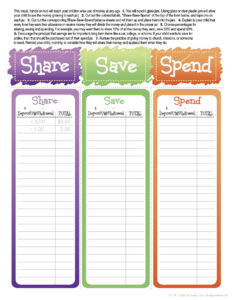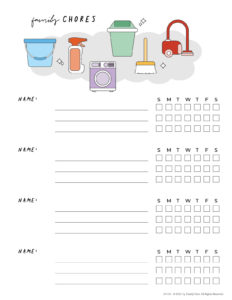When my firstborn turned 18, questions swirled around in my mind: Did I do what I set out to do? Is she ready for college, work, marriage, and children? Can she take care of herself, pay bills, handle a fender bender? It really didn’t seem possible. She’d be graduating in three months and gone in five. My heart was breaking, and yet when I looked at her, I was so excited for her.
My thoughts shifted to her siblings, my four other children. Over the next several years, I’d be sending them off one by one into the world. What did I need to do to feel more confident that they were prepared? If your kids are considering college or a life out from under your roof, make sure they are equipped with these 10 important life skills.
1. Basic Cooking Skills
Your teen might never have to change a flat tire, but he will have to eat on day one of living on his own. Sure, ramen is the official food of college students, but if your teen knows how to cook, he’s more likely to make better choices.
How to work on this life skill now: Get with your teen to create a list of dishes to master by move-out day. An egg or oatmeal for breakfast and a quesadilla, grilled cheese, or grilled chicken for dinner. Then one day per month, ask him to help you or Dad cook dinner. It also wouldn’t hurt to occasionally practice tough love and say, “If you want to eat tonight, you need to cook.” Then be around to answer questions and put out fires (only figuratively, I hope).
2. Budgeting and Money Management Skills 
Kids who are involved in extra-curriculars or have a rigorous academic schedule might not have time for a part-time job. When they have no regular income, it’s hard to understand a budget or money management. Once kids are on their own, overspending and charging on credit cards can be tempting.
How to work on budgeting and money management now: Get creative with ways your teen can earn money. Maybe a part-time job or allowance out of your pocket isn’t doable. Could she walk a neighbor’s dog or babysit? Once she has a form of income, you can work on spending, saving, and sharing and talk about staying in the black on a budget instead of sliding into the red.
3. What to Do When You’re Under the Weather
From the day he was born, your child knew how to tell you he wasn’t feeling well, but what if you’re not there?
How to practice this life skill now: To be fair, it’s hard even for an adult to figure out what’s wrong when you’re the one who’s under the weather. And knowing what meds and how much to take is also tricky. Step one is knowing how to use a thermometer, so let him practice on himself and you. From there, it’s best to keep it simple. Headache? Ibuprofen. Fever? Tylenol. Food poisoning? Prayer.
4. Good Social Skills and Manners
Knowing how to converse with adults will help your child with college instructors and potential employers. Socialization and manners are life skills that need your attention before your teen packs boxes to move out, but better late than never!
Work on it ASAP by having your teen speak for herself at school, restaurants, and the grocery store. On the side, ask friends to engage with your teen to give her practice answering and asking questions and receiving and giving compliments.
5. Auto Maintenance Skills
He might never get a flat tire, but knowing how to change a tire would give your teen a huge confidence boost. And if he thinks the check engine light is just a “suggestion,” a pricey car repair is right around the corner.
How to teach auto maintenance now: Instead of keeping it between you and your husband, talk with the kids about what’s going on with your car. If it’s reaching the mileage for an oil change, mention it and the number of miles. “We’re at 3,000 miles. We’ve gotta get to the shop, or it’ll be bad for the engine.” If you get a nail in the tire, have your teen go with you to determine if a patch will do or if you need a new tire. Familiarity can make a big difference in young drivers’ confidence with car issues.
6. Essential Domestic Skills
A friend confessed that for his first semester of college, he washed his clothes with fabric softener. His mom had always done his laundry. Your kids don’t have to be lifestyle influencers, but they should know how to do their own laundry, clean their own dorm rooms or apartments, and handle small household emergencies like a clogged toilet.
You know the answer here. To practice these life skills before they’re on their own, give your kids chores. They’re just as important as homework and extracurricular activities.
7. Being a Good Judge of Character
Kids meet people in college who become lifelong friends. Many even meet their future spouses. On the other hand, I’ve heard plenty of stories of kids getting taken advantage of by a manipulative friend or roommate. It’s not easy to know a person’s character, especially when you have few mutual friends, but discerning character is an important life skill because friends influence our young adult children more than we care to admit.
Help your child learn to assess whether someone is a good friend who will help her be her best. This usually happens by trial and error. If she gets hurt by a friend, talk about traits she saw in that friend that were warning signs. We don’t want our kids to be closed off to other people, but we do want them to act prudently and protect themselves from harm.
8. Work Skills and Basic Responsibility
Your teen will eventually learn this the hard way if you don’t equip him before leaving home. By the “hard way,” I mean he’ll get fired from a job or fail a class.
Help your child now! Don’t be the mom who calls her teen’s boss at the ice cream shop to ask for a schedule change. And don’t pack his backpack for him. Let him face natural consequences.
9. The Ability to Discern Between Love and Infatuation

How do you build this life skill if your child isn’t dating anyone? There are plenty of examples in movies and tv shows of good and bad dating relationships. Don’t be afraid to share your own experiences, too.
10. The Ability to Admit Fault and Start Over
We all make mistakes. Many parents raise kids with the goal of helping them make as few mistakes as possible. But the wiser strategy is to help your children learn how to say, “I’m sorry, I was wrong,” and take responsibility for those mistakes. A young person who can do that will be able to regroup and try again in work, in the classroom, and in relationships.
Work on this life skill with your kids and lead by example. Admit when you’ve messed up. Forgive and praise your child when she owns a mistake. Celebrate a fresh start and the growth that failure can bring.
How did you teach your kids life skills?












